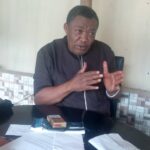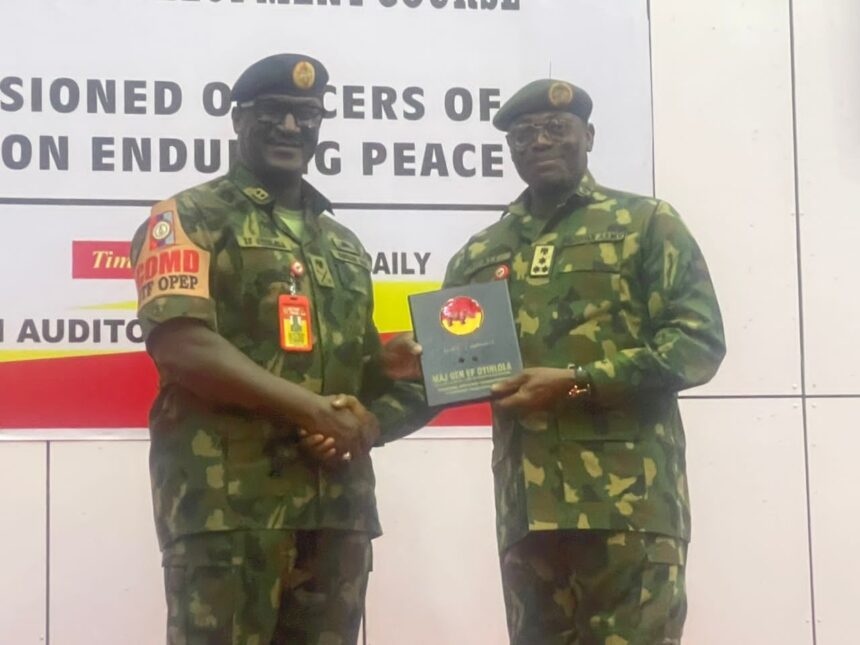Aleke Aleke in Abuja
The Defence Headquarters’ Operation Safe Corridor (OPSC) conducted a sensitisation lecture for troops of 3 Division and Operation Enduring Peace.
The capacity-building initiative, the Army said, centred around ongoing efforts to integrate non-kinetic strategies into military operations.
According to a statement by the Operation, the training — held at the 3 Division Auditorium, Maxwell Khobe Cantonment, Jos — brought together participants from various security agencies in the state.
In a keynote lecture titled “Non-Kinetic Pathway to Peace and Security: Operation Safe Corridor in Perspective”, the Coordinator of Operation Safe Corridor, Brigadier General Yusuf Ali, emphasised that while kinetic military operations are essential for disrupting insurgent and criminal activities, lasting peace requires addressing the root causes of conflict.
General Ali stated:
“Kinetic means alone cannot achieve sustainable security. We must also confront the underlying drivers of insecurity, such as ideological indoctrination, poverty, and socio-economic marginalisation.”
The Coordinator identified the cyclical nature of insurgent recruitment as one of the challenges confronting the programme.
He revealed that a small fraction — less than 1% — of individuals who complete the deradicalisation process have been known to relapse, while new recruits continue to emerge, hindering long-term peacebuilding.
General Ali also addressed public misconceptions that the programme is lenient towards former combatants.
He attributed these views to a lack of public awareness and urged troops to become champions of a balanced approach that integrates both kinetic and non-kinetic methods.
“The non-kinetic processes employed in Nigeria have demonstrably weakened insurgent recruitment networks, fostered community reconciliation, and provided a structured pathway for repentant combatants to reintegrate into society,” he explained.
In his closing remarks, the General Officer Commanding 3 Division and Commander of Operation Enduring Peace, Major General Folusho Oyinlola, reaffirmed the initiative’s strategic value.
He described Operation Safe Corridor as a vital soft-power tool for deradicalising, rehabilitating, and reintegrating individuals coerced into terrorism.
“Strategic communication is key. It ensures our actions and messaging are aligned with our national security objectives,” Oyinlola said.
He charged the participants to return to their units and educate their colleagues on the essential role Operation Safe Corridor plays in the nation’s overall counterterrorism campaign.












